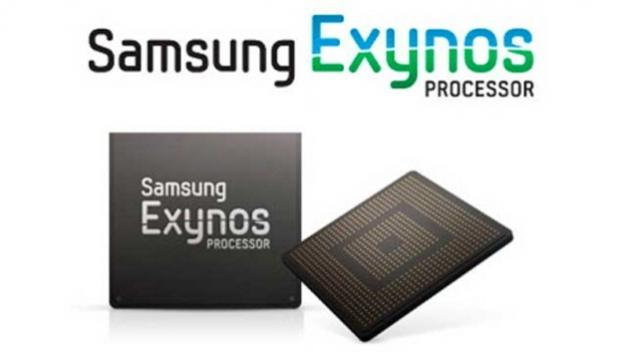Samsung has not announced any 64-bit processor yet, but according to a recent patchset Exynos 7 may be their first 64-bit ARM SoC, and it will be based on the faster Cortex A57 cores. A quick way to learn a little more is to check the device tree file (exynos7.dtsi).
 Here’s an interesting snippet:
Here’s an interesting snippet:
|
1 2 3 4 5 6 7 8 9 10 |
+ cpus { + #address-cells = ; + #size-cells = ; + + cpu@0 { + device_type = "cpu"; + compatible = "arm,cortex-a57", "arm,armv8"; + reg = ; + }; + }; |
As it stands, Exynos7 would be a single core Cortex A57 processor. This sounds unlikely that a company would launch a single core processor at this stage, so it’s probably early code that may not support all cores just yet. We also know Samsung uses ESPRESSO board for development with Samsung Exynos 7 processor and 3 GB RAM.
Thanks to David for the tips.

Jean-Luc started CNX Software in 2010 as a part-time endeavor, before quitting his job as a software engineering manager, and starting to write daily news, and reviews full time later in 2011.
Support CNX Software! Donate via cryptocurrencies, become a Patron on Patreon, or purchase goods on Amazon or Aliexpress





It’s their first consumer ARMv8 64-bit silicon, but they also had GH7 for development purposes probably. DTSI has a single A57 core, but that already raised questions from reviewers. A single core might only as an example with actual cores being specified in DTS, or some kind of workaround for a lack of code for Exynos7 (it’s just an initial patchset).
The first indicator that Samsung was up to something was when Evandro Menezes (Samsung, US) earlier this month sent a patch to gcc-patches regarding a fix for AArch64 also created another bug report for AArch64. AFAIK, he is probably the only @samsung.com looking into AArch64 on GCC.
Samsung R&D center in Russia has quite some touches in GCC, especially for Address Sanitizer related activity.
Maybe finally we will manage to get ~200 USD development boards. It’s now either tegra132 (Tegra K1 64-bit) or Exynos 7. While tegra132 will end up being more favored (recent blog post about Fedora 21 supported ARM architectures). There are already ~5 boards with 64-bit Tegra (DTS in Android and ChromeOS), not to mention Google’s Tango project tablet. Tegra is the only custom core for ARMv8 in consumer grade market so far. 64-bit Tegra architecture is very interesting (in-order pipeline, out-of-order complexity moved to firmware, 7-way superscalar, dynamic code optimization, etc.)
Almost 🙂 So much waiting.
@davidlt
Sorry, but could you be more specific about Tegra K1 64bit boards? IIRC those are just plain Cortex-A15 boards since so called Nvidia Denver was not released in silicon yet.
I might have been mistaken regarding Project Tango, the tear down showed 4-core Tegra K1. There are DTS for several boards in Android and Chromium source tree with tegra132. DTS states it’s 2 cores, compatible with “nvidia,denver” and “arm,armv8”. These boards are only for internal and partners use for bringing up the products (Android smartphones and new Chromebooks).
There’s also another Samsung 64-bit ARM SoC that’s more talked about in the press: Exynos 5433 which might be found in Galaxy Note 4 next month.. http://liliputing.com/2014/08/samsungs-first-64-bit-chip-launch-september.html
@cnxsoft
5433 doesn’t make sense for me. 5430 was the first 20nm silicon. From the marketing point of view naming ARMv8 64-bit silicon 5433 wouldn’t make sense as it would confuse people. Thus I would expect Note 4 to have Exynos 7. More patches are flowing in from Samsung, also from more developers. The timing for Note 4 is also perfect. We will know for sure in a few days.
They definitely need at least 20nm for A57 in mobile silicon.
Samsung also promised 14nm FinFET (also Globalfoundaries will use Samsungs’ 14nm FinFET process) and custom ARMv8 cores (in 2015 maybe).
Only companies with custom ARMv8 cores so far are APM, Cavium, Nvidia and Apple.
According to Anandtech Exynos 5433 is indeed a Cortex A53/A57 processor, but it will probably only run 32-bit code, whereas Exynos 7420 will be a “true” CortexA53/A57 with support for 64-bit instruction and running Android L. http://www.anandtech.com/show/8537/samsungs-exynos-5433-is-an-a57a53-arm-soc